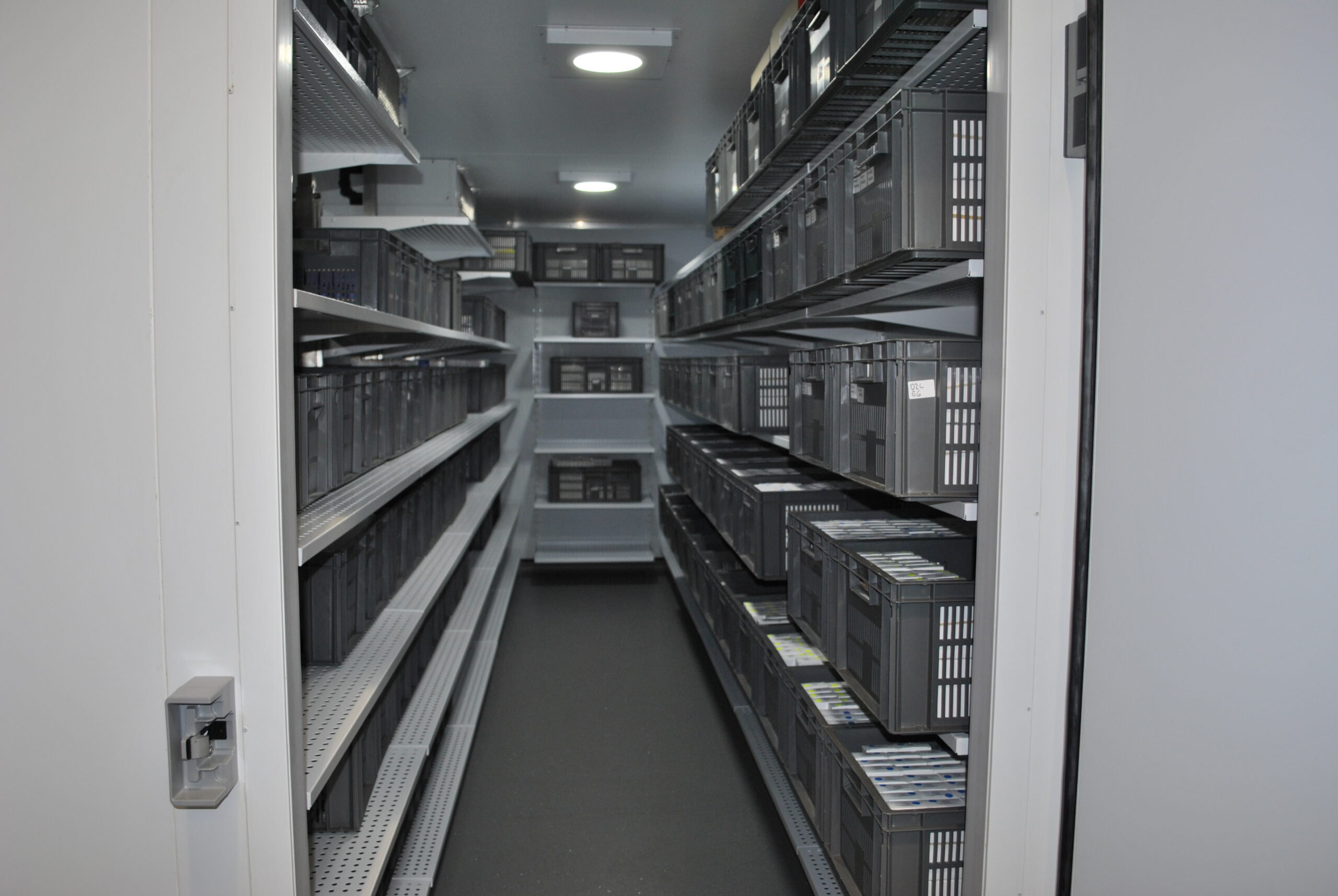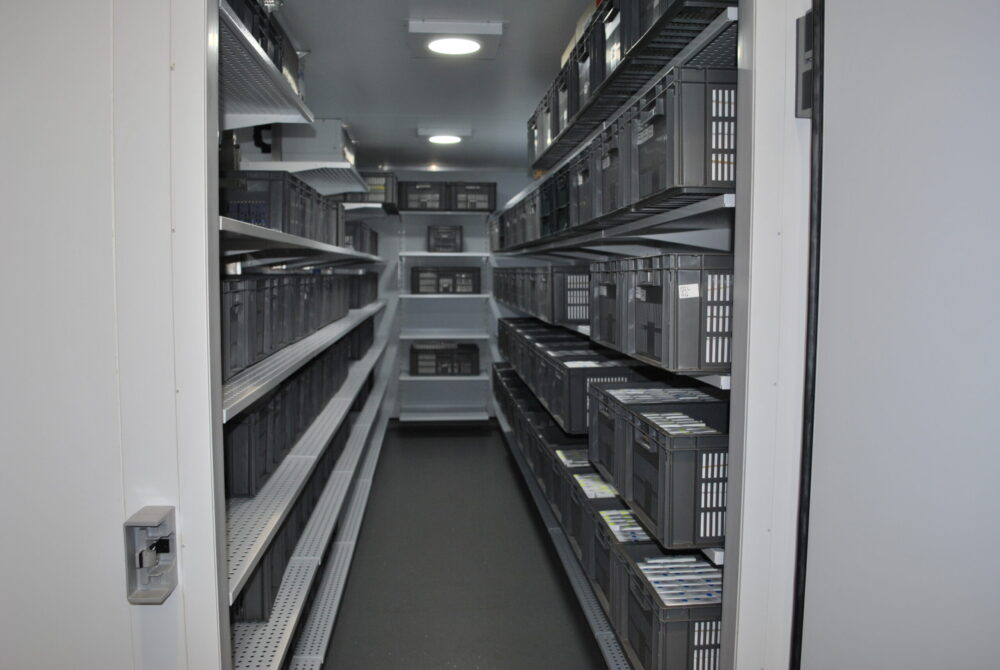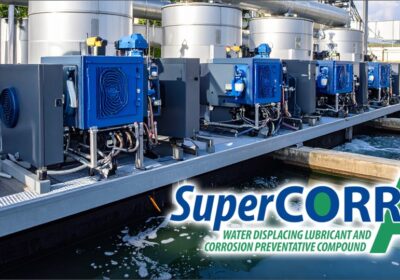~ Leveraging data insights to optimise equipment performance and minimise disruptions ~
Proactive maintenance forms the foundation of a successful laboratory, ensuring equipment remains reliable, minimising downtime and safeguarding client outcomes. From tracking data from failures to tailored preventive checks, effective planning and execution underpins the consistent delivery of high-quality service. Beccy Bell, associate director of laboratory services at testing and regulatory consultancy Broughton, delves into the critical role of maintenance strategies in achieving seamless operations.
Pharmaceutical and laboratory-based companies can frequently prevent potential failures by identifying them early. While it’s impossible to predict every issue, having a dedicated team to handle reactive maintenance ensures that any unexpected problems, such as equipment failure, can be addressed quickly and efficiently. A well-rounded plan addresses the unique demands of each instrument and ensures reliable performance.
Proactive vs. reactive maintenance
A proactive maintenance approach is essential for minimising disruptions and extending the lifespan of equipment. By closely monitoring failure trends and intervening at the first sign of potential issues, problems can be addressed before they escalate, preventing costly downtime.
Regular annual assessments of equipment usage and performance allow for maintenance schedules to be adjusted accordingly, helping to avoid unexpected breakdowns and ensuring that equipment continues to perform at its best over time.
Annual assessments provide a comprehensive review of every piece of equipment, including its age, usage in the lab and associated supplier service agreements, such as call-out rates. High-risk items, such as those critical to maintaining client services, are identified and appropriate risk assessments are implemented to mitigate potential issues.
Regular reviews of maintenance data and equipment performance are essential for continuous improvement. By analysing trends in failures and assessing root causes, you can refine maintenance schedules and processes. For example, this technique has enabled Broughton to save over £10,000 per year on HPLC bulbs through ongoing improvements, such as monthly UV intensity checks.
A skilled team trained to manage both preventive and reactive maintenance tasks is vital for maintaining efficient operations. Their expertise ensures that issues are resolved quickly, minimising downtime and avoiding disruptions to productivity or service quality.
A dedicated maintenance team also provides the advantage of in-depth knowledge of functionality, gained through training from external suppliers and engineers, allowing for quick and efficient troubleshooting. This significantly reduces reliance on external support, allowing for faster response times and greater flexibility in addressing maintenance needs, even in urgent situations.
Leveraging data
Data plays a significant role in shaping effective maintenance strategies. By using data, such as an equipment failure log, you can capture detailed entries that allow for thorough analysis, helping to identify emerging trends and recurring issues. Regular reviews of these trends, along with root cause analysis, provide valuable insights that enable you to optimise maintenance schedules and plan part replacements such as HPLC lamps more effectively.
This approach ensures that parts are replaced based on actual usage and observed trends, rather than incurring unnecessary costs or experiencing unexpected failures, ultimately ensuring the long-term reliability of your equipment. At Broughton, maintenance is guided by failure trends. After three similar failures, Corrective and Preventive Action (CAPA) is initiated to investigate the root cause and prevent recurrence, applying this process across all equipment.
For instance, if an HPLC pump fails, it would be logged as an equipment failure, prompting a review of historical data to determine if similar issues have occurred previously, whether it’s isolated to this specific equipment, or if it could affect others. The detailed log captures information about what was being run at the time of the failure, including the method, enabling Broughton to thoroughly investigate and identify the root cause.
Emergencies and redundancies
Being well-prepared for unexpected equipment failures is crucial to maintaining smooth operations. Having backup equipment or storage solutions in place ensures that business continuity is maintained, even in the event of a failure, preventing major interruptions of pharma, nicotine or cannabis stability studies. With Broughton having immediate options available, if an environment was failing, they can make quick decisions which may ultimately save a client’s study.
Establishing clear protocols for logging failures and responding swiftly helps to ensure that issues are addressed in a timely and efficient manner. Taking immediate action can safeguard processes such as toxicology assessments and minimise any potential disruptions to client projects. This proactive approach not only protects the integrity of operations but also reassures clients that their projects will proceed without unnecessary delays. If Broughton raises an Equipment Failure (EF), the team assesses immediate failure data, which are further analysed in monthly reviews, allowing better predictions.
Evaluating new technologies can take longer than simply replacing a model like-for-like, so forward planning is essential, especially when equipment has been discontinued, such as performing annual contingency assessments.

Collaboration with suppliers and OEMs
While a significant portion of maintenance can be effectively managed in-house, partnerships with Original Equipment Manufacturers (OEMs) and suppliers are invaluable. These industry experts play a crucial role in assisting with qualifications, offering specialised support during more complex issues, and enhancing troubleshooting efforts.
Collaborating closely with OEMs not only ensures that maintenance is carried out to the highest standard but also provides valuable opportunities for your team to expand their knowledge and develop their skills. This ongoing learning helps to strengthen your maintenance capabilities, ensuring your team is always equipped to handle evolving challenges and maintain equipment reliability.
At Broughton, we are committed to delivering the highest standard of service as a trusted contract laboratory. Broughton accelerates the development of next-generation nicotine products, supports advancements in medicinal cannabis and CBD, and drives innovation in pharmaceutical devices. The focus on quality, safety and improved patient care ensures high standards across all services.
Broughton performs maintenance services tailored to the specific needs of each piece of equipment, including preventive checks, routine servicing, and calibration requirements.
With 15 years of experience, Broughton has comprehensive equipment records and maintenance forms to ensure activities are always approached in the same proactive manner. Even when challenges arise behind the scenes, we ensure our clients experience seamless support without any compromise to quality. Choose Broughton today for dependable, seamless service and expertise you can count on.








